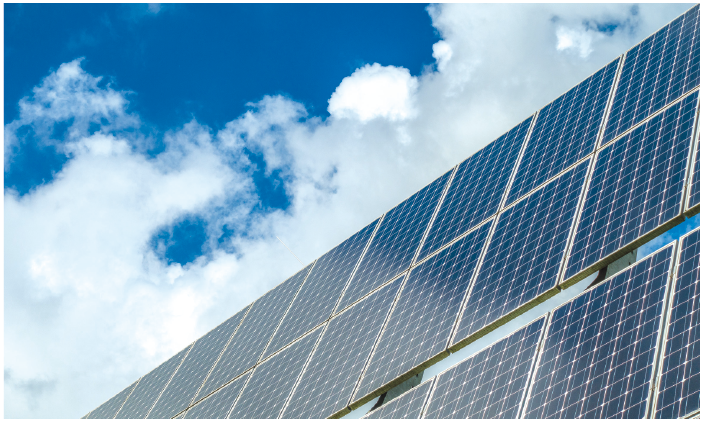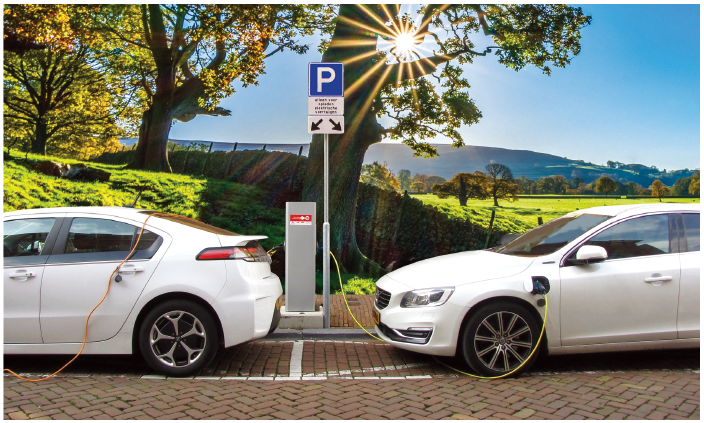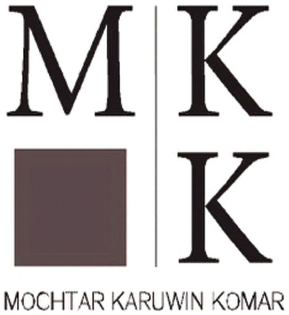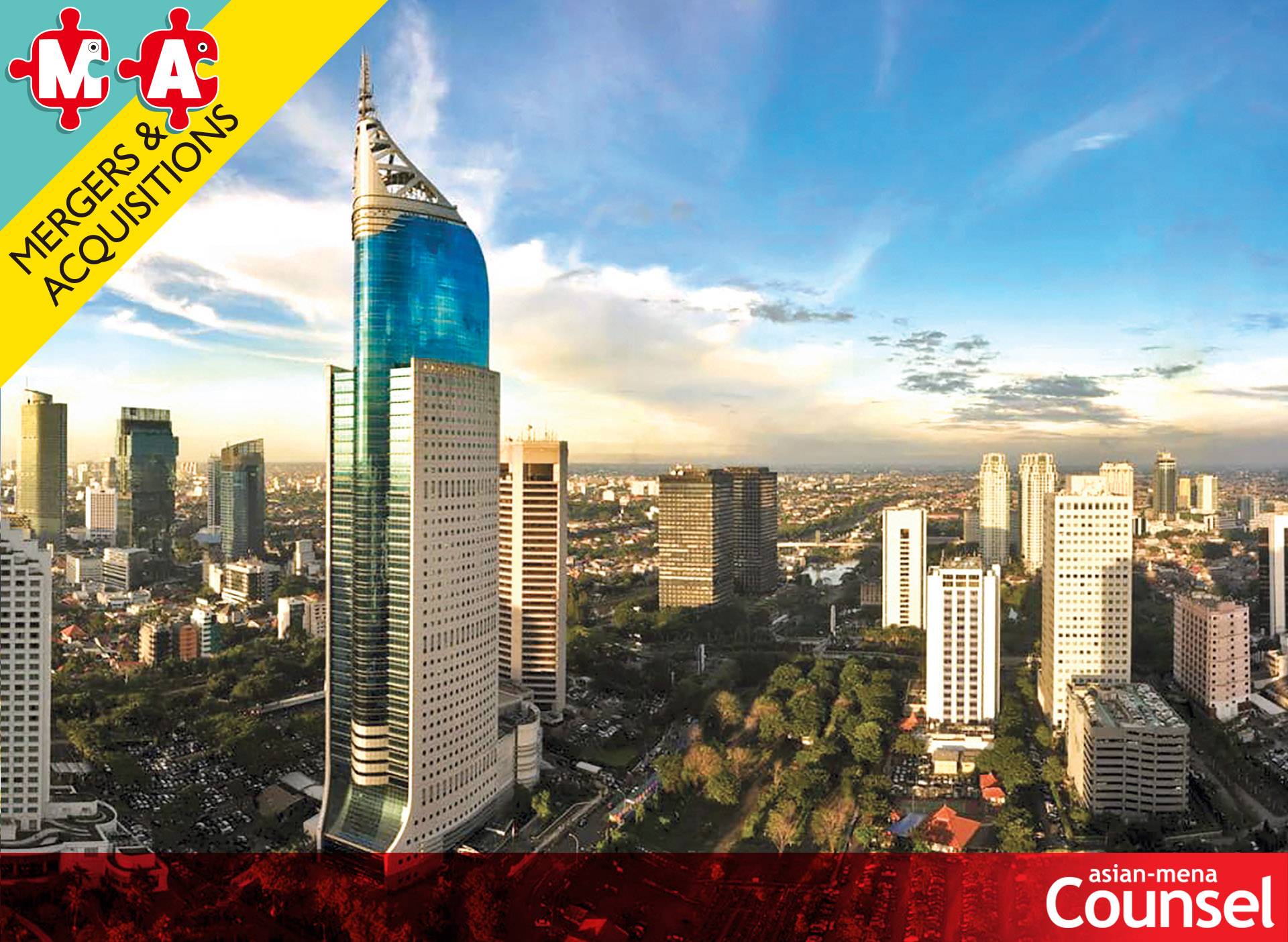Published in Asian-mena Counsel: Projects & Energy Report 2020
Several new and upcoming policies passed by the government are expected to gain traction this year, write Ferdinand Jullaga Tambunan and Tommy Handono of Mochtar Karuwin Komar.
Indonesia’s presidential election in 2019 ended uncertainty surrounding doing business in Indonesia. It was hoped that the investment inflow would be boosted by the introduction of numerous innovative regulations by the new government, which appeared extremely eager to support the development of the renewable energy industry. We can expect there will be new policies in 2020 to provide even stronger support to policies initiated in 2019.
Rooftop solar power industry
Recent developments indicate that the government is paying more attention to the rooftop solar power sector and wishes to stimulate the industry’s development. This sector remained unregulated until 2018, at which time the Ministry of Energy and Mineral Resources (MEMR) issued MEMR Regulation No. 49 of 2018 on the Use of Rooftop Solar Power Systems by PLN Customers (MEMR 49/2018). MEMR 49/2018, however, was amended twice in the second semester of 2019. The first amendment was MEMR Regulation No. 13 of 2019 on the Amendment of MEMR No. 49 of 2018 on the Use of Rooftop Power Systems by PLN Customers (MEMR 13/2019), which was issued subsequent to promulgation of MEMR No. 12 of 2019 on Electric Power Generation Capacity for Own Use Pursuant to Operating Licence (MEMR 12/2019). These MEMR 12/2019 and MEMR 13/2019 regulations read in conjunction aim to simplify the licensing and worthiness certification requirement for own use power generation generally.
The second amendment was MEMR No. 16 of 2019 on the Second Amendment No. 49 of 2018 on the Use of Rooftop Power System by PLN Customers (MEMR 16/2019). MEMR 16/2019 provides for reduction of capacity charges by PLN industrial customers and elimination of emergency energy charges, as was previously provided under MEMR 49/2018 and will result in more viability economically in providing solar PV electricity. Capacity charges were previously one of the main hindrances for industry to adopt and install solar power for their operations. Prior to MEMR 16/2019, PLN industrial customers had to pay a 40-hour capacity charge which was basically the same amount of capacity charge as any other PLN industrial customers that had a captive baseload power plant, such as a coal or gas power plant. There was no preferential treatment for rooftop solar projects, despite the obvious difference in nature between solar power and baseload power plants in terms of time of operation and availability. Given that the amount had been reduced to 1/8 only, ie five hours per month, we can expect in 2020 that many companies will opt for solar photovoltaic electricity.
It was clear from the outset that the intention of the government was to foster the market for rooftop solar power by implementing this change. This also corresponds to the issued 2019-2028 PLN Electricity Supply Business Plan (Rencana Usaha Penyediaan Tenaga Listrik or RUPTL). In the RUPTL, PLN sets as a target to optimise utilisation of solar energy for development of the electricity supply infrastructure and, therefore, we can expect that development of this sector will experience an upsurge in 2020.

Battery electric vehicles (BEV)
In 2019, the government also introduced a regulation which provides rules in the sector that previously had not been specifically regulated. The government issued Presidential Regulation No. 55 of 2019 regarding Acceleration of Battery Electric Vehicles Programs for Road Transportation (PR 55/2019). The government demonstrated its intention to boost development of the BEV industry, and PR 55/2019 set out the measures that the government would take to promote and accelerate such development. It was also understood that the grand plan of the government for the long term was to make Indonesia a base for the production and export of BEV, just as has been going on for decades in respect of conventional motor vehicles.
PR 55/2019 provides that BEV companies must build their manufacturing facilities onshore, which to manufacture or assemble vehicles or components. Companies may develop manufacturing facilities by themselves or through a partnership with another company. PR 55/2019 also allows and in fact supports partnerships between government entities with private companies in conducting research and development and innovation in BEV technology.
The government will also provide various incentives for companies doing business in various sectors that by offering fiscal and non-fiscal incentives. The fiscal incentives include tax or import duty relief, reduction on charging fees and financial support for research or construction of facilities in respect of BEV charging facilities. Non-fiscal incentives include exemptions from the limitation to use certain roads, granting of production rights in respect of technologies which the government holds the right to, and maintenance of the safety and security in the area where the BEV industry will be based.
The provision of charging stations shall be carried out by state-owned enterprises working in the energy sector, but PR 55/2019 provides opportunities for private companies to do so by way of entering into a partnership with the said state-owned enterprises. The sale of electricity must be carried out by a company that holds a power supply business licence (Izin Usaha Penyediaan Tenaga Listrik) in the relevant working area. A state-owned enterprise operating in the electricity sector, PLN, holds a power supply business licence in respect of selling power and has rights over the working area to sell electricity in almost the entire territory of Indonesia. Therefore, the private sector may only operate a charging station and sell electricity by way of partnership with PLN as the only holder that can sell electricity to endcustomers. This is not applicable to certain specific areas, such as industrial zones where the developer has its own power supply business licence to sell electricity.
 The BEV which are imported to, manufactured and/or assembled in Indonesia are subject to registration and testing similar to the requirements applicable to conventional vehicles. PR 55/2019 also provides for a minimum local content requirement for BEV which will gradually increase. It requires a minimum 35 to 40 percent local content in BEV as of 2019 which will be increased up to 80 percent by 2026 or 2030 depending on the type of vehicle. Fulfillment of the local content requirements may be met by importing components on an incompletely knocked down or completely knocked down basis so long as such components cannot be produced domestically.
The BEV which are imported to, manufactured and/or assembled in Indonesia are subject to registration and testing similar to the requirements applicable to conventional vehicles. PR 55/2019 also provides for a minimum local content requirement for BEV which will gradually increase. It requires a minimum 35 to 40 percent local content in BEV as of 2019 which will be increased up to 80 percent by 2026 or 2030 depending on the type of vehicle. Fulfillment of the local content requirements may be met by importing components on an incompletely knocked down or completely knocked down basis so long as such components cannot be produced domestically.
To guide the development of the BEV, the government also established a coordination team which will be chaired by the Coordinating Minister for Maritime Affairs and Natural Resources. The members of the team consist of several ministers, including the Minister of Industry, the Minister of Trade and the Minister of Energy and Mineral Resources. The team is expected to accelerate development of the domestic BEV industry and, given that the team is cross-sectoral, coordination within the government to tackle hindrances in implementation can be optimised.
There are reports that electric vehicle sales will greatly increase in the future, ranging between 23 million to 43 million annually, with numbers ranging from 130 million vehicles to at least 250 million vehicles. A global car producer, Toyota, has also announced plans to invest up to US$2 billion to further develop electric vehicles in the future in addition to hybrid vehicles that are currently being produced. The government clearly aims to boost the development of BEV and take part of the market share of industry that is expected will boom over the next decade. This objective is also evidenced by the government’s policy in respect of the export ban of mineral resources, particularly nickel. The government in 2019 accelerated implementation of the export ban from the timeline stated in the original plan. Nickel is an important element in the production of lithium-ion batteries used in electric vehicles. The lithium-ion batteries make up a large part of the production costs of the BEV. Hence, the policy on the accelerated export ban of mineral resources might have been initiated by the government to be in alignment with the objective to develop the BEV industry.

New tariff for renewable energy
The development of the renewable energy industry in Indonesia has been carried out in a less than optimum (some might say sluggish) manner over the past few years. One of the reasons might be due to the introduction of a tariff for renewable energy projects in 2017 which was tied to the cost of generation provision (biaya pokok penyediaan or BPP) of PLN, the state-owned enterprise responsible for the electricity sector. There was a limit for the renewable energy tariff, depending on the location of the power generation project, all tied to the BPP of PLN. There have been concerns from industry that the cost for generation of renewable energy should not be compared with the costs for generation of non-renewable energy, given the vast differences in terms of investment and technology, among others. Prior to the regulation promulgated in 2017, the government set out the feed-in tariff for various types of power plants, and the government tasked PLN to absorb and purchase all electricity generated by independent power producers. At the time, PLN deemed the feed-in tariff to be too high; this was one of the reasons why the government introduced the regulation in 2017 which stipulated the tariff tied to the BPP of PLN.
The government then realised that since the change of tariff was tied to BPP, development of renewable energy was not ideal. To improve the development of the renewable energy sector, the government is planning to issue new regulations which will introduce new tariffs for renewable energy. The new regulations are expected to be issued by the first half of 2020 in the form of a Presidential Regulation (a regulation that in hierarchy is higher than a Ministerial Regulation).
 The new regulation is expected to set out the price for the purchase of renewable energy by PLN, except for geothermal energy. The price will not be tied to the BPP of PLN. It will be set as a ceiling price to give wiggle room for PLN to negotiate with the private sector. It is also reported that the set off price will gradually decrease along with the progress of the project. The government views that along with the continuation of the project, the costs for production will also decrease, given asset depreciation, repayment of loan and others. The Director General of Electricity (DGE) stated that the regulation may set out prices that are different between the period of the first year until the twelfth year, and the remaining period of the power purchase agreement. The government hopes that this arrangement will still be attractive to the private sector, but at the same time does not put too much of a burden on PLN.
The new regulation is expected to set out the price for the purchase of renewable energy by PLN, except for geothermal energy. The price will not be tied to the BPP of PLN. It will be set as a ceiling price to give wiggle room for PLN to negotiate with the private sector. It is also reported that the set off price will gradually decrease along with the progress of the project. The government views that along with the continuation of the project, the costs for production will also decrease, given asset depreciation, repayment of loan and others. The Director General of Electricity (DGE) stated that the regulation may set out prices that are different between the period of the first year until the twelfth year, and the remaining period of the power purchase agreement. The government hopes that this arrangement will still be attractive to the private sector, but at the same time does not put too much of a burden on PLN.
The new regulation mentioned above will not stipulate the price for purchase of electricity by PLN from geothermal energy, as it will be set out in a separate regulation. The government view the nature of geothermal energy as being different from other renewable forms of energy, particularly since geothermal involves an upstream process and the risk associated thereto. The DGE stated that there is a plan to provide an arrangement which is similar to the one with the oil and gas sector, whereby the government offers a cost recovery scheme. The government hopes to reduce exploration risk for the private sector in developing geothermal projects. There is also discussion for the government to contribute to the sunk cost of projects during the exploration stage, particularly for drilling activities. However, these contributions by the government may in turn affect the pricing calculation for electricity produced from geothermal energy.
The government realises that there are changes that need to be made in order to attract more participation from the private sector. Particularly since the government’s target is to produce 23 percent of electricity from renewable energy by 2025. The new regulations which will set out the new tariff for renewable energy will demonstrate the commitment that the government is willing to make to support development of the renewable energy industry.

E: ferdinand.jullaga@mkklaw.net
E: tommy.gunarsa@mkklaw.net
![]() Click Here to read the full issue of Asian-mena Counsel: Projects & Energy Report 2020.
Click Here to read the full issue of Asian-mena Counsel: Projects & Energy Report 2020.














 Mochtar Karuwin Komar (MKK)
Mochtar Karuwin Komar (MKK) Emir Kusumaatmadja
Emir Kusumaatmadja Mulyana
Mulyana







